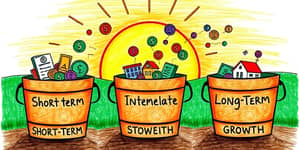
In an era driven by rapid metrics and quarterly reports, it is all too easy to fall into the trap of chasing quick wins. Yet true, enduring success often hinges not on fleeting achievements but on the transformative power of process. By shifting focus from immediate results to daily rituals and continuous improvement, individuals and organizations can cultivate resilience, creativity, and sustainable growth.
Short-term thinking elevates immediate gains at the expense of future potential. Whether in corporate boardrooms or personal pursuits, the obsession with outcomes can lead to hasty decisions, eroded trust, and burnout.
Executive compensation tied strictly to quarterly metrics may indeed boost next quarter’s earnings, but research consistently shows it undermines long-term value creation and stakeholder relationships. Teams pressured by narrow targets often skip critical learning cycles, stifling innovation and adaptability.
On a personal level, outcome obsession breeds anxiety. Individuals fixated on a specific result—lose a set number of pounds, hit a sales quota, or publish a certain number of articles—experience stress when progress stalls. This fluctuating sense of success erodes accountability and fosters internal conflict, as definitions of “winning” shift with every new deadline.
In contrast, a process-first mindset prioritizes consistent, adaptable daily routines over single achievements. When markets shift or life throws curveballs, a solid process infrastructure allows for swift pivots and course corrections without losing momentum.
Process orientation is not a rigid prescription; it is a framework for experimentation. Regular reflection sessions, incremental tweaks, and feedback loops turn each iteration into an opportunity for deeper learning. Over time, these small adjustments compound into profound expertise and breakthrough insights.
Moreover, centering on controllable actions—like dedicating 30 minutes each morning to skill development or holding weekly check-ins—reduces uncertainty. Individuals and teams report lower stress levels and higher morale when they can see tangible progress through process milestones rather than unpredictable outcomes.
Psychologists highlight the link between process engagement and sustained well-being. Focusing on the journey, rather than fixating on the destination, promotes presence and a lasting sense of fulfillment.
People who define success through daily habits—such as writing 500 words a day or practicing a musical instrument for 20 minutes—experience stronger intrinsic motivation. They report sustained intrinsic motivation and lower anxiety because their sense of control remains intact, independent of external factors like market fluctuations or public acclaim.
This orientation also nurtures a growth mindset. When failure is reframed as data rather than defeat, experimentation becomes safe. Teams that embrace inclusive experimentation are more likely to uncover novel solutions, driving innovation at every level.
Transitioning from outcome obsession to process mastery requires deliberate, step-by-step action. Start by redefining your goals in terms of behaviors rather than endpoints. Then, build clear rituals that integrate into your daily life or organizational culture.
While process orientation offers manifold advantages, it also carries potential pitfalls if misunderstood. Purely following a process without outcome awareness can lead to bureaucratic inertia—an empty ritual devoid of purpose.
Similarly, measuring intangible progress demands creativity. Setting up proxy metrics—engagement rates, consistency scores, or reflection journal entries—can help teams visualize forward momentum when direct outcomes are distant or unpredictable.
Different stakeholders may define success differently. Clear communication and shared definitions of progress become essential to align efforts and avoid conflicting priorities. Regularly revisiting both process goals and outcome targets ensures the two remain in harmony and reinforce each other, rather than compete for attention.
In a landscape often dominated by fleeting benchmarks, a process-first philosophy offers a beacon of sustainable progress. By embedding robust routines, nurturing experimentation, and celebrating small milestones, individuals and organizations alike can weather storms, adapt to shifting conditions, and continually level up.
Reorienting goals around daily actions instills a sense of agency and reduces the stress of unpredictable outcomes. Over time, this approach yields not only higher performance but also a profound sense of purpose and joy.
Embrace the journey, refine your methods, and watch as the compound effects of deliberate practice transform aspirations into enduring achievements. The path to meaningful success begins not at the finish line, but with the very next step in your process.
References













